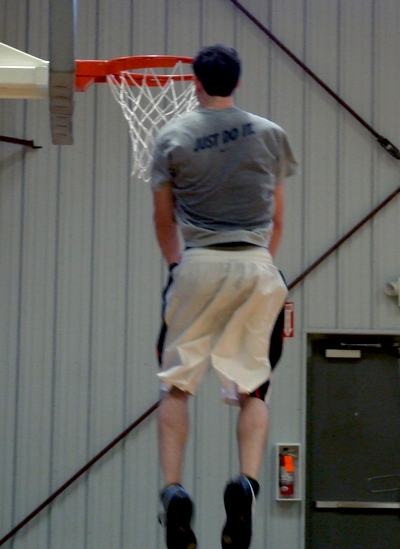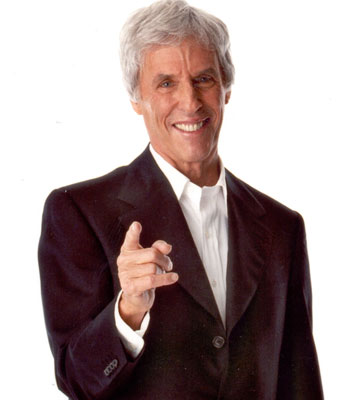![]() If it wasn’t for haste, my number of husband “Man Errors” would be significantly lower along with about a million other unnecessary things I say and do. “Haste makes waste” is a hard axiom to dispute. Whether it’s rushing your shot in a game or mistiming the words you say I can confirm that Rush Hour can become a lifestyle – a habit detrimental to you and those closest to you.
If it wasn’t for haste, my number of husband “Man Errors” would be significantly lower along with about a million other unnecessary things I say and do. “Haste makes waste” is a hard axiom to dispute. Whether it’s rushing your shot in a game or mistiming the words you say I can confirm that Rush Hour can become a lifestyle – a habit detrimental to you and those closest to you.
What prompts me to rush my words or impetuously make decisions is a false sense of urgency. In my mind I’m thinking #1 that I’m right and #2 that what I have to say has immediate significance. I used to think that it was just the delivery of my words that bore importance but I’m learning Trial-and-Error style that I talk too much and often at the wrong times.
Where actions are concerned, I’m guilty of imposing fallacious time tables on myself, the kind that say, ” You’re wanting to apply to that Ph.D. program and you only have 5-6 weeks to get it done.” The truth is, I have until I die to get it done; I’d just rather not wait that long. Rush Hour is a monarchy in our age, dare I say a Dictatorship. Ethics, priorities and the very joy of our existence, at least mine, are adversely affected by a propensity to be expedient at all costs. Fast is the rule in Southern California but we’re not alone.
So if I had this morning back, I’d take the rush out of my conversation with my wife. I’d take my time leaving the house because I forgot my wallet and it cost me 10 minutes. In my hurry to do some yard work I turned the hedge trimmers into 100-foot extension cord trimmers. Did I mention that I’m three weeks behind on car washing, home repair and book publishing research because I’ve created an unlivable pace that speeds me past things and people that matter. “Young man,” the older folks used to say, “What’s your hurry?”
 I’ve seen it all when it comes to selling out. I’ve been the “sell-out” in my own mind and a victim of my own self talk. “Norman, you sell-out, dating that (non-African American) girl.” Or, “Norman, you need to sell-out brotha. Don’t you see all the guys at this pro workout ditching work to make the most of this basketball tryout? You hustled over here after work but that ain’t enough.” I’ve also said, “Norman, you’re a sell-out man because you’re afraid to use your academic vernacular around people who live in the inner city.”
I’ve seen it all when it comes to selling out. I’ve been the “sell-out” in my own mind and a victim of my own self talk. “Norman, you sell-out, dating that (non-African American) girl.” Or, “Norman, you need to sell-out brotha. Don’t you see all the guys at this pro workout ditching work to make the most of this basketball tryout? You hustled over here after work but that ain’t enough.” I’ve also said, “Norman, you’re a sell-out man because you’re afraid to use your academic vernacular around people who live in the inner city.”
 Burt Bacharach composed an ageless classic whose chorus goes: “What the world needs now is love sweet love. It’s the only thing that there’s just too little of.” I haven’t downloaded any of Bacharach’s greatest hits (no offense to Mr. Bacharach) but I just created a station for him on pandora.com. Back to the love, I see that the world’s need could be localized to sport or work for that matter.
Burt Bacharach composed an ageless classic whose chorus goes: “What the world needs now is love sweet love. It’s the only thing that there’s just too little of.” I haven’t downloaded any of Bacharach’s greatest hits (no offense to Mr. Bacharach) but I just created a station for him on pandora.com. Back to the love, I see that the world’s need could be localized to sport or work for that matter.
 I
I ‘m learning that when you reprimand subordinates, the purpose is to reconstruct. I was coaching one day when a player showed up unprepared for practice. My reaction was a series of interwoven emotions: disappointment, a sense that I had been disrespected, anger and embarrassment. I made the mistake of allowing my emotions to move me away from constructive coaching into punitive coaching. The latter sounds like an oxymoron because it is. If coaching becomes punishing, it is no longer interested in moving the player or subordinate forward. I talked aloud with my assistant coach about the situation within earshot of the player and thus embarrassed my player. She was upset but mostly saddened because I didn’t seem to understand her reason for not practicing.
‘m learning that when you reprimand subordinates, the purpose is to reconstruct. I was coaching one day when a player showed up unprepared for practice. My reaction was a series of interwoven emotions: disappointment, a sense that I had been disrespected, anger and embarrassment. I made the mistake of allowing my emotions to move me away from constructive coaching into punitive coaching. The latter sounds like an oxymoron because it is. If coaching becomes punishing, it is no longer interested in moving the player or subordinate forward. I talked aloud with my assistant coach about the situation within earshot of the player and thus embarrassed my player. She was upset but mostly saddened because I didn’t seem to understand her reason for not practicing. The motivation for making an excuse is puzzling every time I or others do it.
The motivation for making an excuse is puzzling every time I or others do it. I dreamed of being recruited to play Division I College Basketball. Big deal. Haven’t I been rehashing my aspirations and disappointments as a motif on this blog? But what I didn’t know is that the typical four-year athletic scholarship, affectionately known as a “Full Ride” is actually a series of one-year scholarships. When you’re recruited out of high school, apparently you’re offered an opportunity to play your sport for free, one year at-a-time. You have to renew your scholarship each year technically and sometimes, if a new coaching regime replaces the old, you could go from Full Ride to Hitchike Home in a matter of seconds.
I dreamed of being recruited to play Division I College Basketball. Big deal. Haven’t I been rehashing my aspirations and disappointments as a motif on this blog? But what I didn’t know is that the typical four-year athletic scholarship, affectionately known as a “Full Ride” is actually a series of one-year scholarships. When you’re recruited out of high school, apparently you’re offered an opportunity to play your sport for free, one year at-a-time. You have to renew your scholarship each year technically and sometimes, if a new coaching regime replaces the old, you could go from Full Ride to Hitchike Home in a matter of seconds.